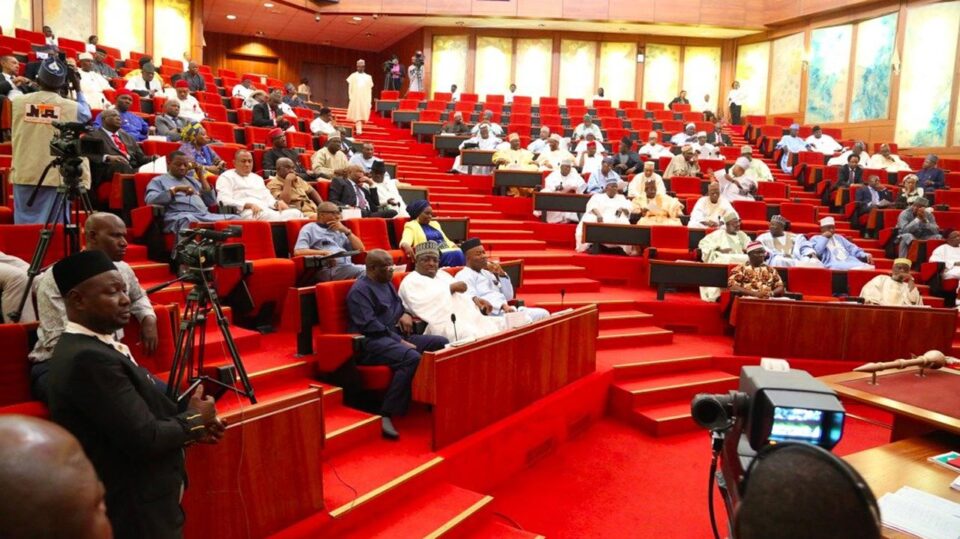By Abba – Eku Onyekachi
Abuja
The legislative and executive arms of the government have been enjoined to synergize in order to review the the National Development Plan (NDP) toward integrating the 8-point agenda of President Bola Tinubu and consider legislating aspects of the agenda for holistic implementation.
This was recommended in a communique unveiled at a 2-day retreat held by the Senate recently in Ikot Ekpene, Akwa Ibom State.
The National Institute for Legislative and Democratic Studies (NILDS) had on 19 and 20th of October, 2023 organised and facilitated the retreat for Nigeria’s 10th Senate.
This is in recognition that the National Assembly plays a crucial role in shaping fiscal policies through its constitutional mandate for debating, approving and overseeing fiscal policies.
Also among other recommendations were the need: to consider relevant constitutional amendments to pave the way for a 5-year development plan to cater for projects and ensure continuity while limiting abandoned projects; to enforce consequences for violations of any provisions of the law regarding monetary and fiscal matters; for legislation that clearly defines the taxing rights of the three levels of government and; for legislative intervention toward promoting the optimization of revenue from non-oil sources, especially in the solid mineral sector.
Included were: enactment of an Emergency Economic Intervention Bill, which will address critical socio-economic issues concerning foreign exchange management, tackling inflation, stimulating economic growth, and creating more jobs; the need for the National Assembly to invite the critical stakeholders in the mining industry to understand the kind of legislation required to make the sector thrive; for the INEC to be unbundled to improve its efficiency and effectiveness in the preparation and conduct of elections.
Added were: the need to be relating to the use of technology in elections; be removing the ambiguous evidence in Section 64 of the EA22, which will make electronic transmission of results mandatory from the next general elections in 2027, including the uploading of polling unit-level results and result sheets used at different levels of result collation; Introducing diaspora voting, at least for presidential elections, to enable citizens to vote, especially those on essential service abroad, such as military, paramilitary, and other security personnel abroad, embassy staff, and other citizens.
Concerning political parties, the recommendations include: to stipulate sanctions for failure to submit the register of party members not later than 30 days before the date of party primaries, congresses, or conventions in relation to Section 77(3) EA22, which the political parties, according to the communique have observed in the breach in the 2023 elections without penalty and; evelop and enact a comprehensive national security strategy that outlines the nation’s security objectives, threats, and policy priorities. Such a strategy can serve as a guiding framework for legislative action in the security sector.
Added were: to address the root causes of terrorism/banditry, which is often driven by poverty, inequality, and a lack of opportunity; to promote community policing and engagement to identify and prevent terrorist attacks. The government should also work with civil society organizations and local/ traditional communities to identify and address security concerns; stablish independent oversight mechanisms for the security sector. These mechanisms, according to the communique can help to investigate allegations of abuse and corruption and to ensure that security forces are accountable to the law.
The rest were: legislative engagement and oversight in Nigeria’s security sector which can be significantly bolstered through comprehensive legislative reforms. These reforms are said to be essential for ensuring that the legislative branch is equipped with the necessary tools and mechanisms to fulfill its critical role in security sector reform; the periodic engagement of the National Assembly with the security chiefs for adequate briefing; that there is a need for the Senate President and the Speaker, House of Representatives to be part of the weekly security briefing that goes to the President; that the Senate should develop its Legislative Agenda that incorporates the outcome of this retreat and; there should be review of the Stamp Duty Act of 1939 and other obsolete and anachronistic laws in conformity with present realities.



